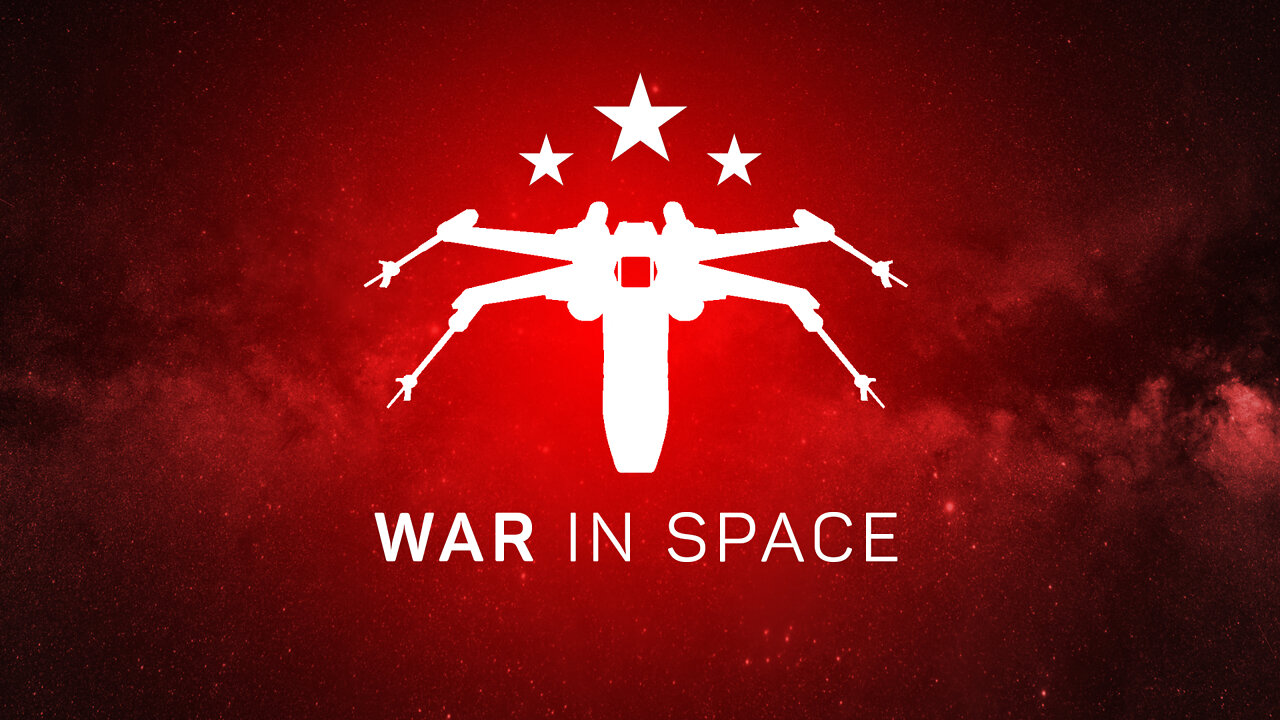Premium Only Content

War in Space
X-wings, TIE fighters, battle cruisers — don’t pretend these images didn’t come to mind when then President Trump announced the idea of a United States Space Force back in 2018. If there’s ever a century for extraterrestrial dogfights between spacecraft to become reality, it’s this one. We’re only thirty years out from the Cold War and military competition in space is heating back up. The addition of a sixth branch to the U.S. military isn’t the only example; look at Russia’s anti-satellite test last November or China’s hypersonic glide vehicle test the summer before that. In VP Mike Pence’s words, space is “a war-fighting domain just like land and air and sea.”
But … is it? Popular depictions of space conflict in movies and TV model it after aerial and naval battles here on Earth. The spaceships fly around like fighter jets, and crews organize themselves like sailors, with a captain on the bridge and red shirts manning the battle stations. The only problem is: that’s not how space works. As soon as you enter orbit, all the rules of regular warfare go out the window. As Doctor Rebecca Reesman, senior project engineer and policy analyst at The Aerospace Corporation, put it in an article on the subject, “spacecraft and space weapons cannot defy physics.”
For starters, let’s think about gravity. On Earth, airplanes keep from plummeting by using the air around them to gain lift. Boats keep themselves from sinking by using their density to stay buoyant. Spacecraft, however, don’t have air or water to push against, so they use lateral motion to stay in orbit.
The way it works is counterintuitive. Although satellites appear to simply fly sideways across the sky when we look at them, gravity is still tugging them Earthward. To prevent themselves from dropping back through the atmosphere, they move in one direction so fast that the force pulling them down can’t keep up with the planet’s curvature. In effect, the Earth falls out beneath them as they fall toward it. Tumbling downward becomes traveling forward.
This will impose tight restraints on any future Space Force general. Planes and ships can move in all directions, speed up or slow down, travel in straight lines and operate relatively freely. Even though planes can’t just stop in mid-air, they can circle over one location. Spacecraft don’t have nearly the same maneuverability. They are constantly moving in a circular or elliptical orbit, and the word “moving” doesn’t do justice to what’s happening. Rocketing or hurdling are more appropriate. The ISS, for instance, orbits the Earth at about 17,000 miles per hour, or five miles per second, fast enough to circle the entire planet in 92 minutes.
Satellites orbiting at a lower altitude need to travel even faster to match the stronger gravity. Therefore, if one wants to move from one altitude to another, it must accelerate or decelerate depending on the desired destination. As you can imagine, pulling that off takes a heap of energy, which requires fuel, and the satellite’s inertia ensures that the whole process takes time.
It’s for this reason that spacecraft traveling beyond Earth orbit often slingshot off the gravity of other planets to tug them along. It’s also why SpaceX’s Starship will need to refuel in orbit before taking off for Mars. Sure, some companies are working on getting gas stations in orbit, but they would have to populate the domain with tons of them to be accessible, and that brings us to another problem: space is unfathomably huge.
The volume between low Earth orbit and geosynchronous orbit is about 50 trillion cubic miles. To put that in perspective, it’s 190 times larger than the volume of Earth. This means that any two enemy satellites would be far apart, and meeting is not as simple as flying at each other. Since it is perpetually orbiting Earth, an attacking satellite must maneuver into the same altitude and plane as its target, then close in on its particular point in orbit. Remember that increasing speed to intercept it would change altitude, messing up the whole operation, and you have some idea of the meticulous planning involved.
Attacking another country’s spacecraft would require a level of precision enabled only by complex calculations carried out by engineers on the ground. Satellite operators could spend days or weeks maneuvering into position, only to find out that the conditions have changed, altering the objective of or need for a strike. In reality, the Space Force’s Captain Kirk would be a nerd with glasses putting math to use in a Pentagon office.
The implications for strategy are profound. Reesman told us, “Conflict in space, for the most part, will be much slower and deliberate than what you’re otherwise accustomed to thinking. It’s probably much more about long-term planning and positioning and maneuvering as opposed to flashy maneuvers and really quick stuff.”
Put simply, a war in space would play out less like a high-speed first-person shooter video game and more like a painfully slow game of chess on a three-dimensional, 50-trillion-cubic-mile board. If you were hoping for a live-streamed battle with the Millennium Falcon sometime this decade, the laws of orbital mechanics say sorry.
I’m Jordan Soto with Space Channel News. Coming up in our series on space warfare, we’ll look at the array of weapons countries might use, the options and vulnerabilities in space defense, and the politics of space security between Russia, China, and the United States. Don’t miss it. You can subscribe to our newsletter on Spacechannel.com or download the app on your phone, tablet or connected TV. See you in space.
-
 LIVE
LIVE
Lofi Girl
2 years agoSynthwave Radio 🌌 - beats to chill/game to
630 watching -
 5:52:00
5:52:00
Akademiks
11 hours agoWAR IN ATLANTA Episode 5. YOUNG THUG FIRST INTERVIEW about SNITCHING, GUNNA... BREAKS DOWN CRYING!
165K9 -
 7:30:25
7:30:25
SpartakusLIVE
15 hours agoVerdansk Duos w/ Nicky || Saturday Spartoons - Variety Later?!
62.3K1 -
 1:38:47
1:38:47
Badlands Media
1 day agoDevolution Power Hour Ep. 387: Trump, Epstein, Durham Mysteries, and North Korea Ops
104K26 -
 1:05:23
1:05:23
Man in America
18 hours agoSoaring Gold Exposes the Imminent Crash of the Old System w/ John Perez
61.6K12 -
 2:42:40
2:42:40
TruthStream with Joe and Scott
19 hours agoTHOMAS AND GROK: AI, Bible decodes, The JESUS Cube live 9/6 #487
50.7K10 -
 2:34:46
2:34:46
BlackDiamondGunsandGear
13 hours agoGet Prepped / After Hours Armory / LIVE SHOW /
33.1K2 -
 2:01:39
2:01:39
Tundra Tactical
12 hours ago $11.29 earned🛑LIVE NOW!! This spits in the face of the Second Amendment.🛑
39.9K8 -
 2:34:46
2:34:46
DLDAfterDark
10 hours ago $4.97 earnedIt's SHTF! Do You Have What You Need?? Let's Review Items & Priorities
28.2K6 -
 28:58
28:58
Stephen Gardner
11 hours ago🚨Explosive allegations: Rosie O’Donnell connects Trump to Epstein scandal!?
45.5K86